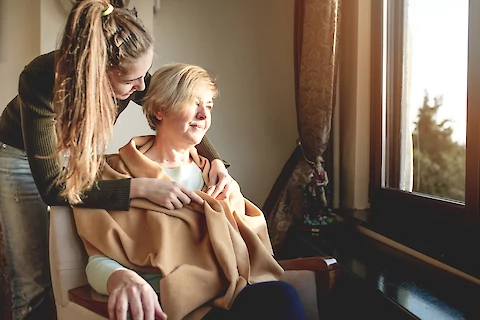
One crucial aspect of senior health that is sometimes overlooked is nutrition. It's not just about what they eat, but also how they eat, and more importantly, how their bodies absorb and utilize these nutrients. This blog will give you what you need to know about senior malnutrition, what it is, how to spot it early, and how to prevent it.
Understanding Malnutrition in Seniors
Malnutrition is when the body doesn't receive enough nutrients it needs to function correctly. When we think about malnutrition, we often associate it with not eating enough. But it can also arise from eating the wrong types of food or the body's inability to absorb nutrients.
Seniors are particularly vulnerable to malnutrition due to factors like decreased appetite, difficulty in food preparation, or underlying health conditions that affect digestion or absorption.
Warning Signs of Senior Malnutrition
Recognizing malnutrition signs early can help you take necessary steps before the issue escalates. Physical signs like sudden weight loss, muscle weakness, or even a change in the way their clothes fit may indicate malnutrition.
But it's not just the physical signs; changes in their behavior or mood can also be a telltale sign. A senior who skips meals regularly, shows a lack of interest in food, or has sudden mood swings might be struggling with malnutrition. Remember, early detection is key, and keeping a close eye on these signs could make a significant difference.
How to Prevent Senior Malnutrition
Preventing malnutrition involves some practical steps. First, be aware of your loved one's eating habits. Are they eating enough? Are they enjoying their meals? Making mealtime enjoyable can boost their appetite. Try preparing their favorite dishes or experimenting with new recipes that incorporate essential nutrients. Look for ways to simplify food preparation, especially if that's a challenge for your senior loved one.
Dietary supplements can also fill in the gaps for certain nutrients, but always consult with a healthcare professional before integrating them into their diet.
In some cases, getting professional help might be necessary. A professional caregiver or nutritionist can provide personalized meal plans keeping seniors' specific health needs in mind.
Role of Professional Caregivers in Preventing Malnutrition
Professional caregivers like Senior Helpers Stamford can provide valuable assistance. Our seasoned caregivers are trained to monitor and address the nutritional needs of seniors. We offer personalized care plans, considering the individual's health condition, eating habits, and preferences. Our goal is to ensure that your senior loved ones receive the nutrients they need to lead a healthy and active life.
Contact Senior Helpers for Personalized Care Services
Seniors' nutrition is a crucial aspect of their overall health. As a family caregiver, understanding and addressing the potential risk of malnutrition in your senior loved ones is vital. Keep track of their eating habits, make mealtime enjoyable, and don't hesitate to ask for professional help when needed.
If you live in Fairfield County, Westport, Norwalk, Stamford, or Greenwich, Senior Helpers Stamford is just a call away. We're here to help you ensure that your loved ones are getting the nutrition they need. Contact us to learn more about our services!